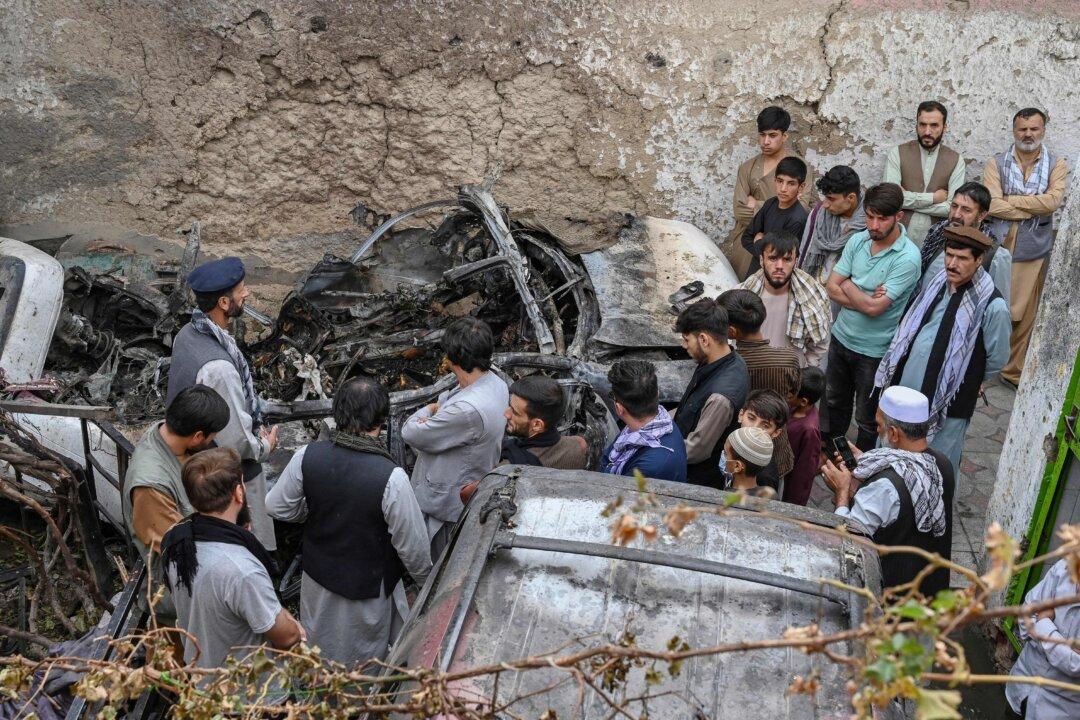Three of the U.S. military’s top officials have told Congress that they realized within hours that a botched Aug. 29 drone strike had killed innocent civilians—contradicting earlier military statements about what the government knew in the aftermath of the incident.
“We knew the strike hit civilians within four to five hours after the strike occurred, and U.S. Central Command issued a press release saying that,” Central Command (CENTCOM) Commander Gen. Kenneth “Frank” McKenzie told members of the House Armed Services Committee (HASC) on Sept. 29, in responding to questions from Rep. Trent Kelly (R-Miss.).




